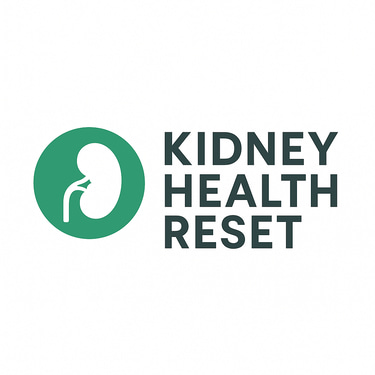Top 10 Foods That Heal — and Hurt — Your Kidneys
5/22/20255 min read


Understanding Kidney Health
The kidneys are vital organs in the human body, serving multiple essential functions that are critical to maintaining overall health. Located on either side of the spine, these bean-shaped organs primarily work to filter and remove waste products from the bloodstream. In doing so, they effectively regulate blood chemistry by eliminating toxins, excess salts, and fluids, thus ensuring that the body maintains a balanced internal environment. This filtration process is fundamental not only for waste elimination but also for maintaining a stable electrolyte balance.
One of the key roles of the kidneys is blood pressure regulation, achieved through the renin-angiotensin-aldosterone system (RAAS). In essence, the kidneys release renin in response to low blood pressure, which in turn stimulates the production of hormones that constrict blood vessels and promote sodium retention, thereby increasing blood pressure. Additionally, by managing the volume of blood in the circulatory system, the kidneys play a crucial role in ensuring proper blood flow and pressure throughout the body.
Furthermore, the kidneys are involved in the production of hormones, such as erythropoietin, which stimulates red blood cell production, and calcitriol, the active form of vitamin D necessary for calcium absorption. Given these substantial responsibilities, it is evident that kidney health is paramount. Unfortunately, various factors, including high blood pressure, diabetes, and dietary habits, can lead to kidney damage and chronic kidney disease (CKD). Therefore, understanding diet's impact is crucial, as specific foods can either promote kidney function or exacerbate kidney issues. A carefully balanced diet can support kidney health, highlighting the importance of food choices in managing potential risks related to organ function.
Foods That Heal Your Kidneys
The connection between diet and kidney health cannot be overstated. Certain foods possess unique properties that can significantly support kidney function and overall well-being. In this section, we highlight five foods known for their healing effects on the kidneys.
1. Blueberries: Known for their antioxidant properties, blueberries are rich in vitamins C and K and are low in calories. Their high levels of anthocyanins not only offer anti-inflammatory benefits but also play a role in reducing oxidative stress, potentially preventing kidney damage. For optimal consumption, enjoy them fresh or as a topping on oatmeal or yogurt.
2. Fatty Fish: Fatty fish such as salmon, mackerel, and sardines are excellent sources of omega-3 fatty acids. These healthy fats help reduce inflammation and can improve lipid profiles, contributing to better kidney function. Cooking methods like grilling or baking preserve their nutrients effectively, making them a beneficial addition to a kidney-friendly diet.
3. Kale: Leafy greens like kale are packed with vitamins A, C, and K, as well as fiber. Kale's potassium content can be adjusted in your diet by opting for smaller portions to benefit from its rich nutrient profile while managing potassium intake. Steaming or sautéing kale enhances its nutritional availability and makes it an excellent side dish.
4. Apples: Apples are a great source of dietary fiber, and they contain flavonoids that can help decrease the risk of chronic kidney disease. They can be enjoyed raw, baked, or in smoothies, providing versatility while aiding kidney health.
5. Garlic: Garlic is renowned for its anti-inflammatory and antioxidant properties. It contains allicin, which has been shown to benefit kidney function. Incorporating fresh garlic into cooking or using it as a seasoning in meals can enhance flavor while promoting kidney health.
Incorporating these foods into your diet can provide significant support for kidney repair and overall function, contributing to a well-rounded, kidney-friendly eating plan.
Foods That Hurt Your Kidneys
The health of our kidneys is vital to overall well-being, and certain dietary choices can significantly impact their function. Below are five foods that can be detrimental to kidney health, primarily due to their high levels of sodium, phosphorus, or potassium, which may worsen existing kidney concerns.
First on the list is processed meats, such as bacon, ham, and sausage. These items are typically high in sodium, which can lead to increased blood pressure and exacerbate kidney damage. High sodium intake forces the kidneys to work harder, potentially leading to further complications in individuals with pre-existing conditions.
Another harmful food is excessive dairy products. While they provide essential nutrients, many dairy items are rich in phosphorus. For those with impaired kidney function, high phosphorus levels can lead to mineral imbalances and bone disease. It may be wise to limit cheese and certain yogurts while opting for low-phosphorus alternatives like almond milk.
Fried foods, particularly fast food options, contain unhealthy fats and high sodium levels. These can lead to obesity and hypertension, both of which place additional strain on the kidneys. Instead, consider healthier cooking methods such as baking or steaming, which preserve nutrients without adding undue stress on kidney function.
Sugary drinks, including sodas and fruit juices, pose another threat to kidney health due to their high sugar content. Excess sugar can lead to obesity and diabetes, both of which are risk factors for kidney disease. Replacing these beverages with water or herbal teas can provide hydration without the harmful effects.
Lastly, excessive consumption of high-potassium foods, such as bananas and oranges, should be approached cautiously. While these fruits are generally healthy, they can cause problems for individuals with kidney disease who may have difficulty processing potassium. Substitutions like apples or berries may offer a safer alternative.
Practical Tips for a Kidney-Friendly Diet
Adopting a kidney-friendly diet is a crucial step towards maintaining optimal kidney health. This dietary approach not only involves selecting the right foods but also strategizing how to prepare and consume them effectively. Meal planning is essential; consider dedicating some time each week to outline your meals. This can help facilitate the inclusion of kidney-healing foods like fresh fruits, vegetables, and whole grains, while also allowing for the avoidance of harmful items such as those high in sodium and phosphorus.
Reading nutritional labels is another vital skill in promoting kidney health. By understanding how to interpret these labels, you can make informed choices about the products you purchase. Focus on choosing foods lower in sodium, unhealthy fats, and added sugars. It is beneficial to become familiar with common terms indicating high sodium content, such as ‘cured,’ ‘smoked,’ or ‘pickled,’ as these can significantly impact your kidney function over time.
When it comes to cooking methods, opt for techniques that minimize harmful substances. Grilling, steaming, and baking rather than frying can preserve the integrity of food while reducing unhealthy fat content. Incorporating herbs and spices instead of salt can enhance flavor without adversely affecting your kidneys. Furthermore, integrating kidney-friendly foods into daily meals, such as leafy greens, berries, and fatty fish, can offer essential nutrients that support kidney function.
It is imperative to note that any significant dietary changes, especially for individuals with existing kidney conditions, should be undertaken with caution. Consulting healthcare providers or a registered dietitian can provide tailored advice based on individual health needs. As each person’s kidney function and dietary requirements can vary, professional guidance ensures a safe transition to a kidney-friendly diet, promoting long-term health and wellness.
